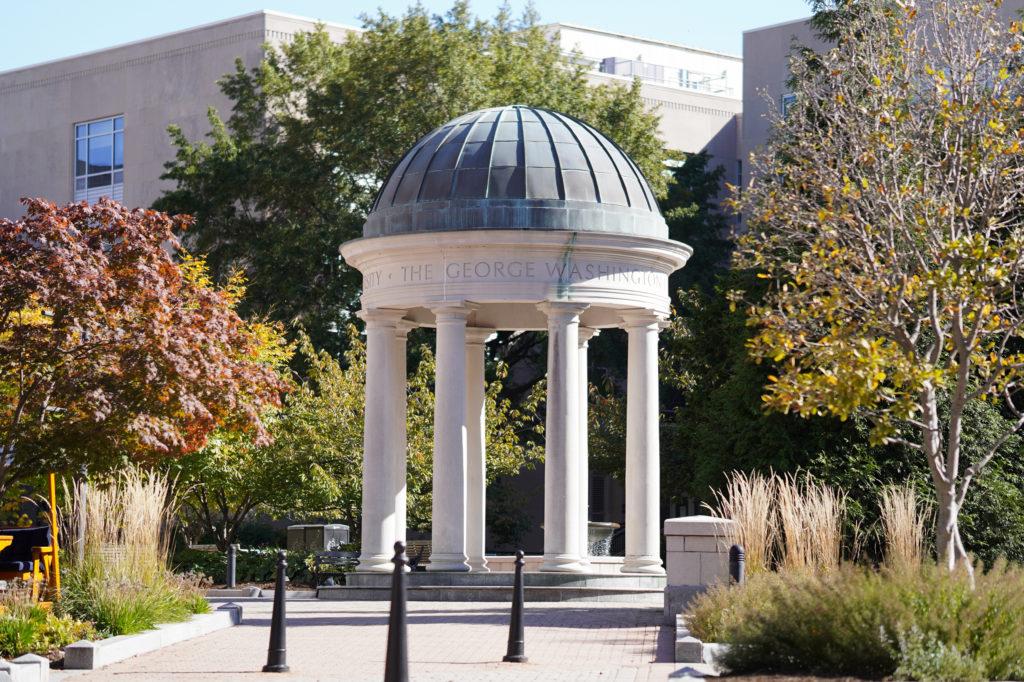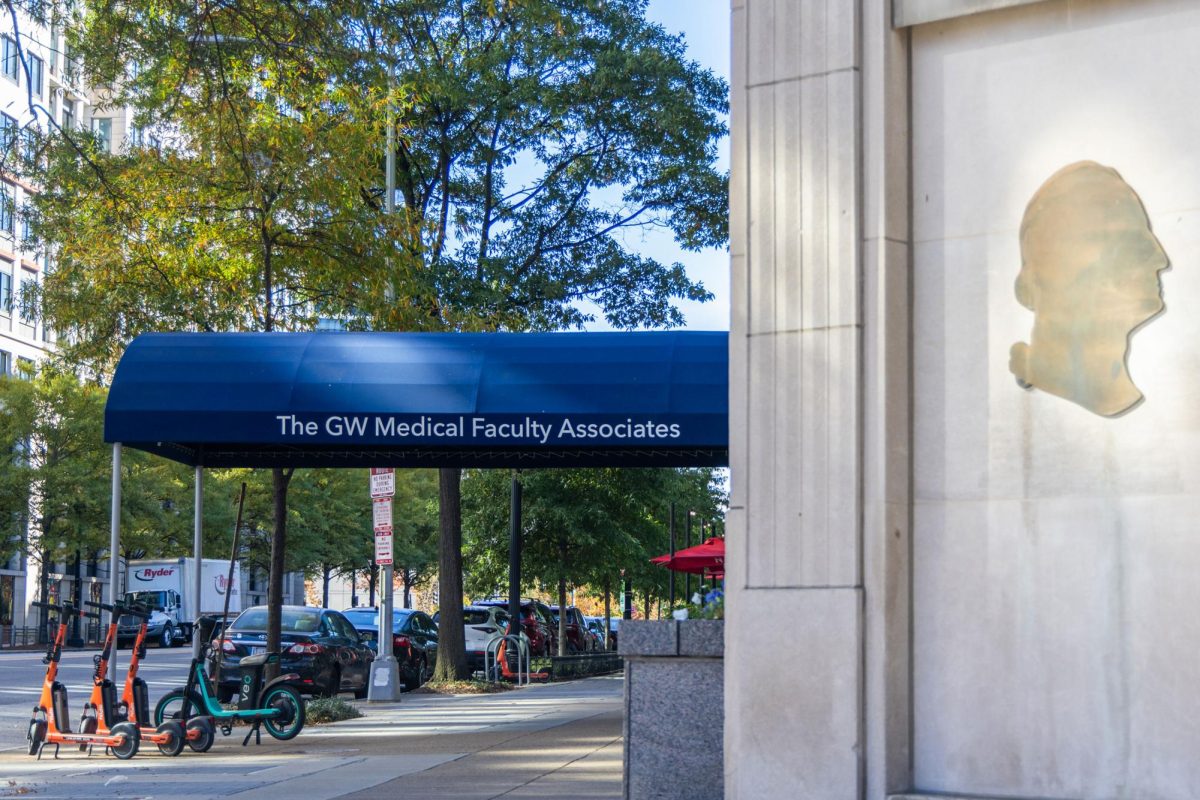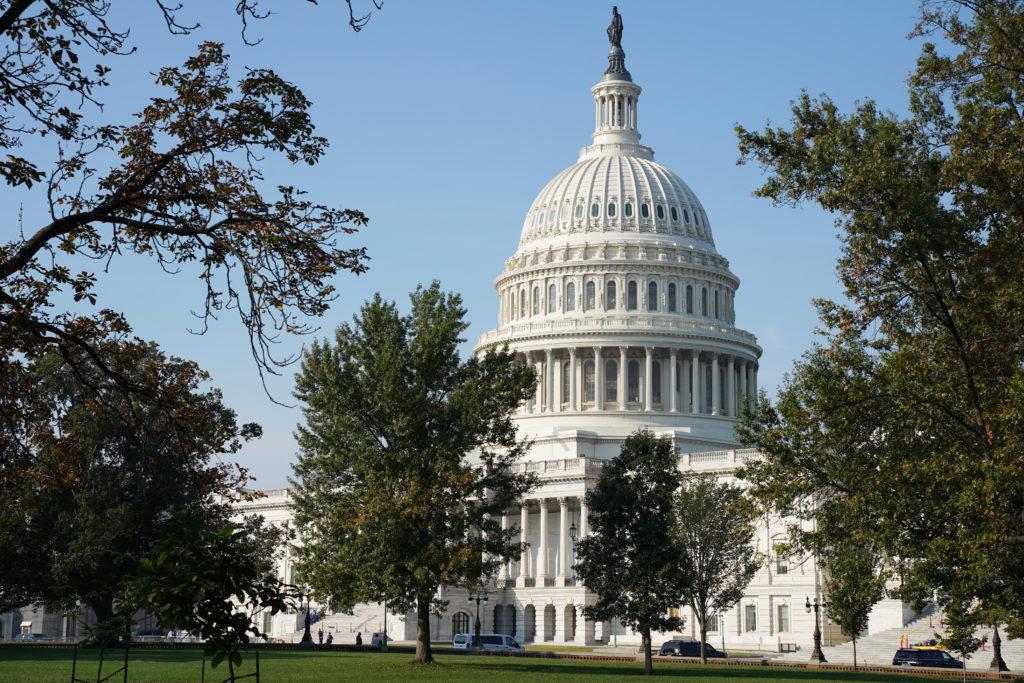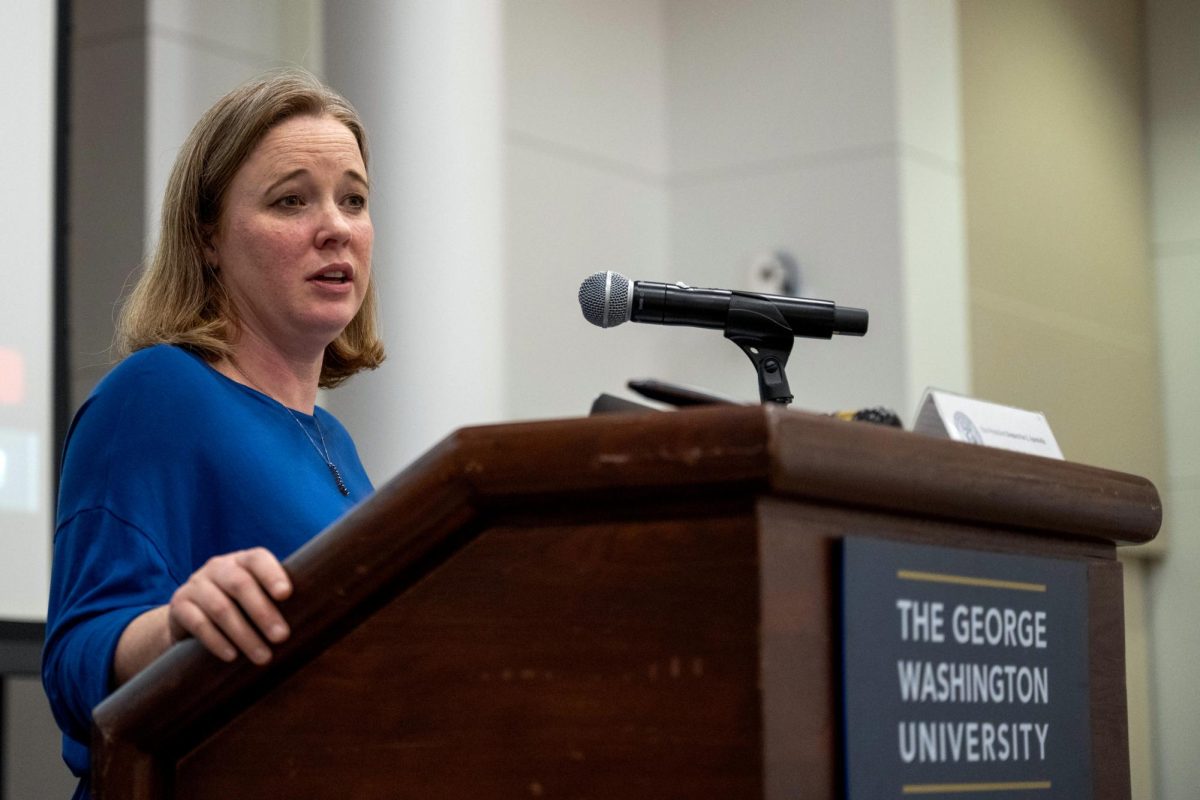Staff raised inquiries on benefits and staff retention to University Vice President and Chief People Officer Sabrina Minor at the first public meeting of GW’s Staff Council on Friday.
The 34-member council, which established its roster in July after two stymied attempts to form a staff governing body in 2014 and 2020, aims to give staff members — employees who are not faculty, unionized employees or administrators — more opportunity to raise and resolve University-wide issues. During their Friday meeting, councilmembers raised concerns on staff benefits and retention, discussed rules and procedures for the newly formed body, coordinated logistics of subcommittees and laid out a plan for testing Zoom webinar and YouTube livestream as platforms for their meetings.
Minor, a guest at the meeting, said staff turnover dropped from 28 percent last year to 16.8 percent this year, despite staff concerns over GW’s issue of staff retention due to the lack of promotion opportunities within a school or department. She said staff may need to change schools within the University to enter a higher ranking position if that position is not available in their current school.
Minor added that she is concerned over the current “use or lose” paid-leave system, where staff lose their paid leave if they do not use it by June 30. She said the use-or-lose system incentivizes staff members to use their remaining paid time off hours by the cutoff date, which she said makes campus feel like a “ghost town” during the summer.
“I can tell you what I’m proposing is that we do not have a cutoff date, June 30, to use your leave by,” Minor said. “I am proposing that we have an accrued bank, and then once you reach a certain number of accrued hours either you use them or you stop accruing.”
Minor said administrators are trying to deliver a “balance” of benefits that satisfy employees of different generations. She said millennials and Generation Z employees value paid time off while Baby Boom and Generation X employees are focused on bolstering their retirement portfolios and health benefits.
Minor said the council should have representatives on the Benefit Advisory Committee — a faculty and staff group that provides feedback to administration on employee benefits — to represent their concerns on leave policies.
Minor also said staff members can serve on an internal review committee that will investigate any use of firearms by the GW Police Department after officials announced in April that some GWPD officers will be equipped with firearms this fall. She said the internal review committee will also include two faculty members and two students.
“You’ll be in charge of looking at the police report, you’ll be in charge of saying ‘Was this an appropriate use of force?’ even if they just pulled out their weapon and pointed it at somebody,” Minor said.
Bridget Schwartz, the president of the Staff Council and the director of student employment, said Minor is one of the Council’s biggest backers.
“Sabrina is arguably the Staff Council’s biggest support and advocate,” Schwartz said. “And she worked incredibly hard to have our bylaws approved so that we could move forward.”
Kim Fulmer, the vice president of the Staff Council and a member of the council’s organizing committee, said in April that former interim University President Mark Wrighton tasked Minor to help a 10-person organizing committee establish the Staff Council. Prior to the Wrighton administration, staff members attempted to establish a staff governing body but were unsuccessful due to a lack of support from former University Presidents Steven Knapp and Thomas LeBlanc.
School representatives on the Staff Council said they joined the governing body to amplify staff concerns like staff recognition from administrators.
Tara Davis, the representative for the School of Medicine and Health Sciences and the director of research operations and finance for the SMHS, said the Staff Council is necessary in order to help give the staff a voice in making change at the University.
She said that as GW continues to grow, more “administrative infrastructure” is necessary to ensure staff are represented in University-wide decisions.
Officials formed a shared governance task force in 2022 consisting of trustees, executive-level staff and faculty to improve trust between administrators and the rest of the GW community, which did not include staff members ranked lower than administration level.
The Presidential Search Committee that selected University President Ellen Granberg consisted of five faculty, eight trustees, a trustee emerita, former Student Association President Christian Zidouemba, former Alumni Association President Will Alexander and Vice Provost for Diversity, Equity and Community Engagement Caroline Laguerre-Brown. The committee did not include nonadministration staff members.
“There’s so many times, especially in the academic environment, [where] of course students are recognized, faculty are recognized, but sometimes staff members, we feel like we’re left out sometimes,” Davis said. “We just want to make sure that everyone, all issues are addressed, and there are professional opportunities and the workplace concerns are addressed.”
Shawn Bayrd, the representative for the School of Nursing and the College of Professional Studies and a program associate at the Office of Community Engagement for the School of Nursing, said the Staff Council is an “exciting” platform through which staff can help shape the operations of the school.
“My goals for this year are to engage the entire GW community in issues that are dear to staff, and to strengthen the community fabric among staff,” Bayrd said in an email. “As we are a new organization, I am hopeful that this council is the beginning of a more cohesive, responsive and advocatory University staff community.”
Jennifer Igbonoba contributed reporting.








